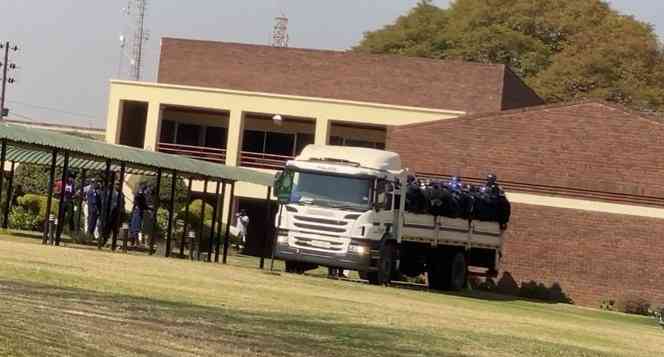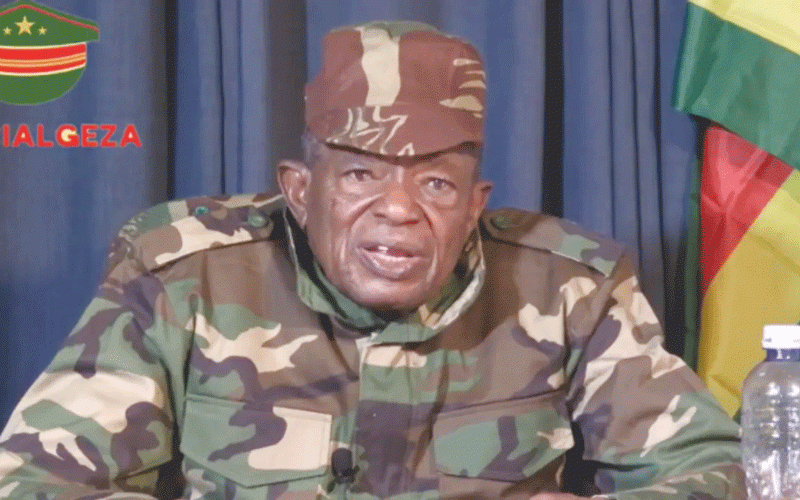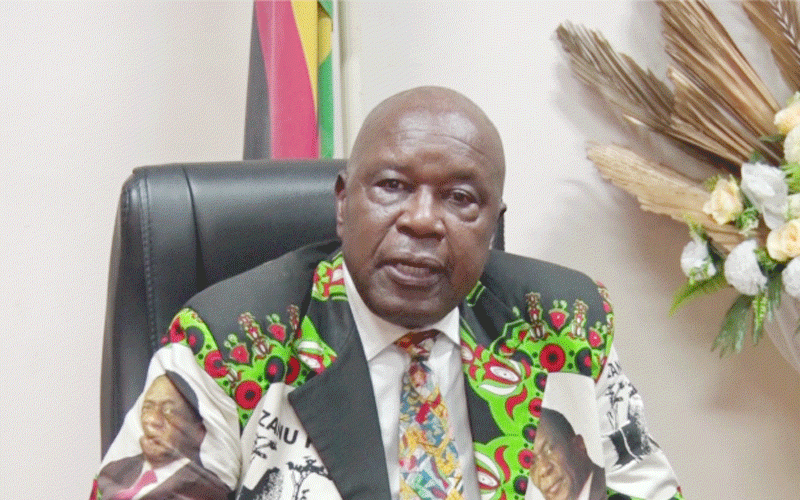
THE Zimbabwe Republic Police (ZRP) has been accused of selective application of the law in its violent crackdown against political and civic groups ahead of the Southern African Development Community (Sadc) summit to be held in Harare in August.
Seventy-eight Citizens Coalition for Change members and a toddler are currently in remand prison for allegedly holding an unsanctioned gathering at the residence of senior party member Jameson Timba in June.
The state accuses them of plotting anti-government protests.
Last week, 44 students belonging to the Zimbabwe National Students Union were arrested at the Zesa Training Centre in Harare where they were accused of violent behaviour.
They were also assaulted.
In another incident members of Job Sikhala’s National Democratic Working Group were detained in June while distributing food in Harare.
They were accused of plotting illegal activities.
While the opposition members and civic groups face a clampdown on their activities, Zanu PF activists have been allowed to hold gatherings as well as street marches to campaign for President Emmerson Mnangagwa’s unconstitutional third term bid.
- Harare businesswoman turns heat on police CCU over 'bias'
- Letter to my people: Criminals are hiding in plain sight
- Crime tech: Technology can eradicate corruption
- UZ situation, a mere tip of the iceberg
Keep Reading
Observers raised alarm about the erosion of democratic freedoms and constitutional rights by the state.
Political analyst, Maxwell Saungweme, warned that such measures were counterproductive and detrimental to the country’s long-term stability.
“It's a sad development where we have to muzzle and suppress family members because a neighbour is visiting,” Saungweme said.
“It speaks of lack of cohesion and unresolved issues.
“A sustainable way to deal with conflict and issues is to surface them and face them, that try to sweep them under the carpet.
“And the end in all this is Zimbabwe and its citizens that lose out, not the neighbours.”
Crisis in Zimbabwe Coalition chairperson, Peter Mutasa, said the political weaponisation of the law was worrisome.
“We are getting into dangerous territories and l am afraid that this is going to deepen even after the Sadc summit,” Mutasa said.
He accused the government of suspending constitutional rights and freedoms ahead of the Sadc summit.
“What we consider as the most dangerous effects of the deepening authoritarian rule is the erosion of citizens’ confidence in the judiciary,” Mutasa said.
“The weaponisation of the law and sadly with complicity of some courts and some judiciary officers is destroying the public trust.
“Another dangerous development is the involvement of what appears to be party militias in threatening citizens.
“This again breeds lawlessness and may lead to many crimes against citizens.”
Mutasa was recently threatened with abduction by suspected state security agents.
“I was threatened and at the risk of abduction at the Robert Mugabe International Airport,” he said.
“It is shocking that citizens can be threatened at the main airport.
“It is also shocking that citizens' movements and itineraries can be shared with such groups.”
Heal Zimbabwe Trust advocacy officer Tapiwanashe Chiriga said the right to protest was enshrined in Zimbabwean law and International Human Rights conventions.
“The attempt to muzzle and shut down democratic and civic space because of the Sadc summit is a diametrical opposite of the principles of freedom and human rights that Sadc is meant to embody,” Chiriga said.
“We must never suspend the constitution and fundamental freedoms because President Mnangagwa is about to assume the rotational chairmanship of Sadc.
“The rapid descent into the abyss in terms of respect for human rights must not be allowed to happen.
“This is a moment for our national institutions, particularly the Zimbabwe Human Rights Commission to show up and protect human rights.”
Efforts to get a comment from national police spokesperson commissioner Paul Nyathi were fruitless, as his phone went unanswered.
Home Affairs minister Kazembe Kazembe, police, other Zanu PF and government officials have recently issued several threats against any planned protests ahead and during the Sadc summit.
Political analyst Rueben Mbofana said the crackdown was an attempt to stifle genuine expressions of discontent.
“What we know for sure is that the government under President Emmerson Mnangagwa is panicking,” Mbofana said.
“What it means is that the democratic space is being crushed by Mnangagwa all in an effort to present a fake image of people who are living happy and in harmony in the country.”









